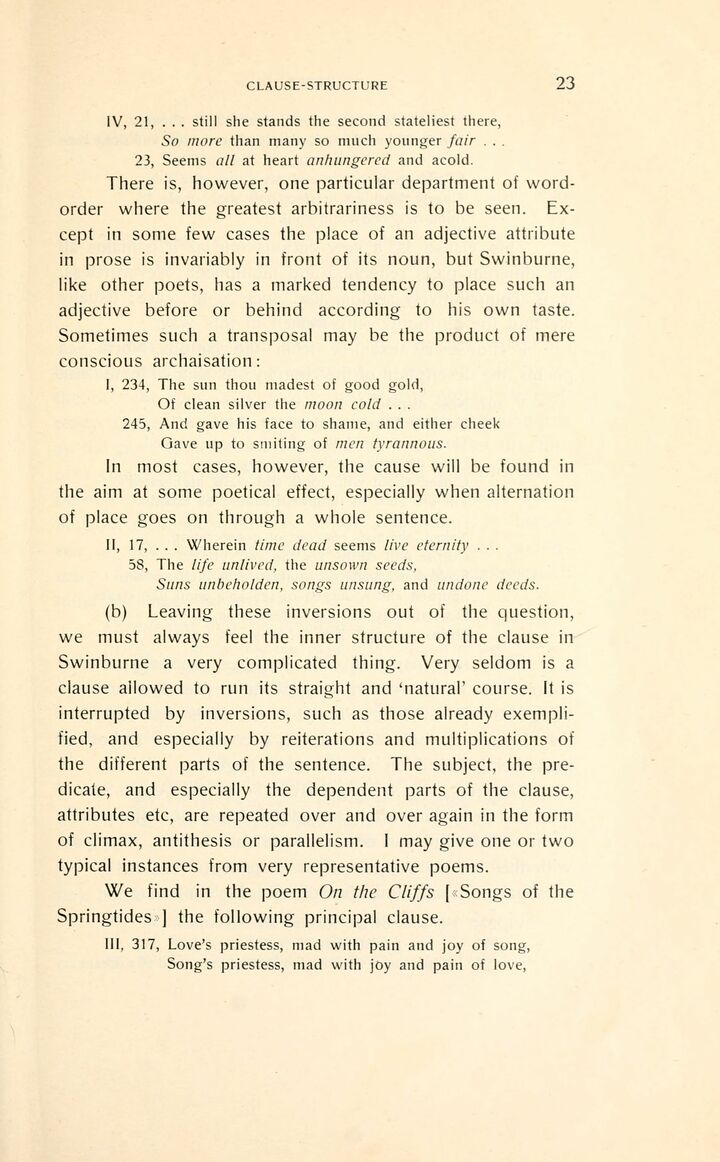
Full resolution (JPEG) - On this page / på denna sida - Sidor ...

<< prev. page << föreg. sida << >> nästa sida >> next page >>
Below is the raw OCR text
from the above scanned image.
Do you see an error? Proofread the page now!
Här nedan syns maskintolkade texten från faksimilbilden ovan.
Ser du något fel? Korrekturläs sidan nu!
This page has never been proofread. / Denna sida har aldrig korrekturlästs.
CLAUSE-STRUCTURE
23
IV, 21, . . . still she stands the second stateliest there,
So more than many so much younger fair . . .
23, Seems all at heart anhungered and acold.
There is, however, one particular department of
word-order where the greatest arbitrariness is to be seen.
Except in some few cases the place of an adjective attribute
in prose is invariably in front of its noun, but Swinburne,
like other poets, has a marked tendency to place such an
adjective before or behind according to his own taste.
Sometimes such a transposal may be the product of mere
conscious archaisation:
I, 234, The sun thou madest of good gold,
Of clean silver the moon cold . . .
245, And gave his face to shame, and either cheek
Gave up to smiting of men tyrannous.
In most cases, however, the cause will be found in
the aim at some poetical effect, especially when alternation
of place goes on through a whole sentence.
II, 17, ... Wherein time dead seems live eternity . . .
58, The life unlived, the unsown seeds,
Suns unbeholden, songs unsung, and undone deeds.
(b) Leaving these inversions out of the question,
we must always feel the inner structure of the clause in
Swinburne a very complicated thing. Very seldom is a
clause allowed to run its straight and ’natural’ course. It is
interrupted by inversions, such as those already
exemplified, and especially by reiterations and multiplications of
the different parts of the sentence. The subject, the
predicate, and especially the dependent parts of the clause,
attributes etc, are repeated over and over again in the form
of climax, antithesis or parallelism. I may give one or two
typical instances from very representative poems.
We find in the poem On the Cliffs [-Songs of the
Springtides?] the following principal clause.
III, 317, Love’s priestess, mad with pain and joy of song,
Song’s priestess, mad with joy and pain of love,
<< prev. page << föreg. sida << >> nästa sida >> next page >>